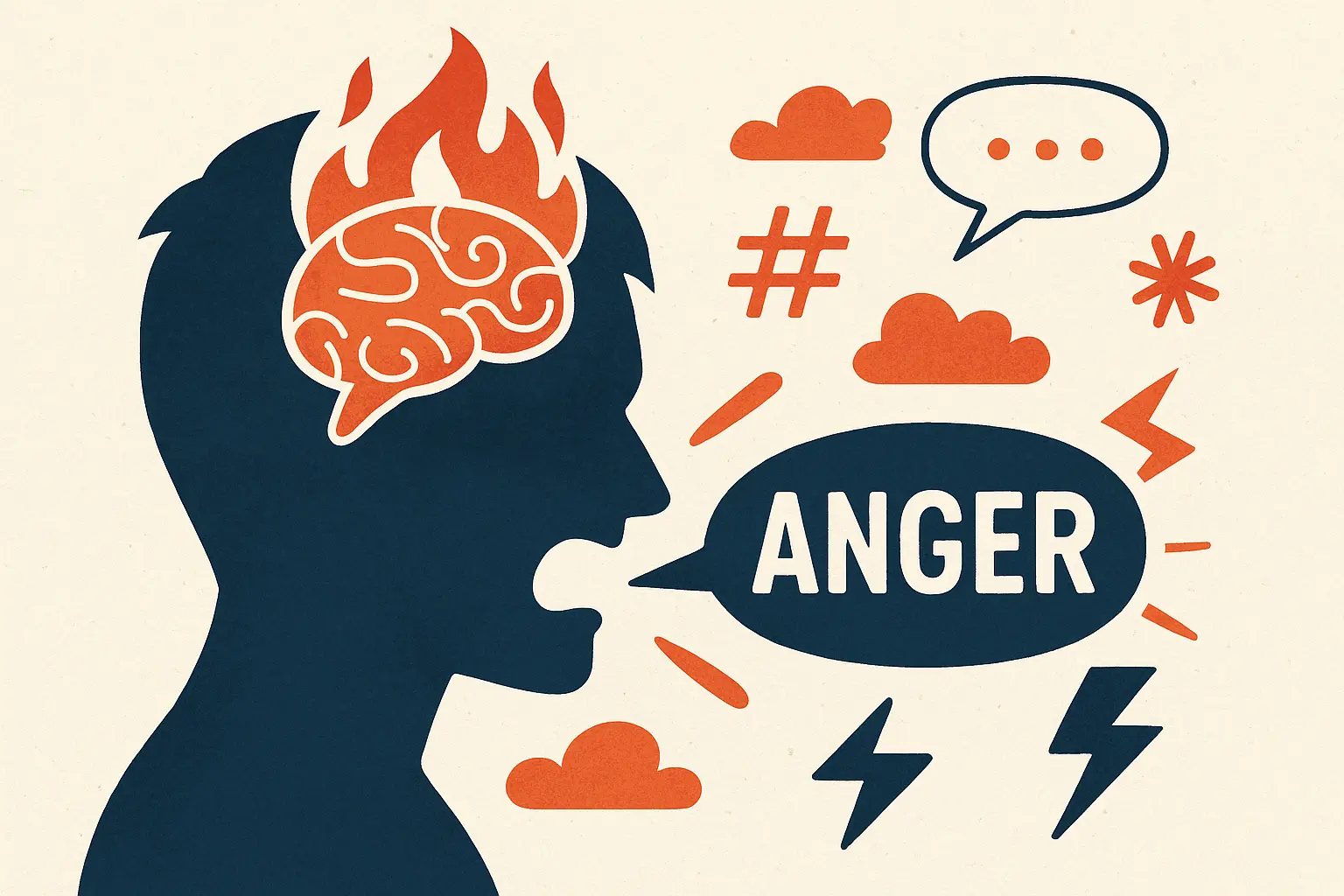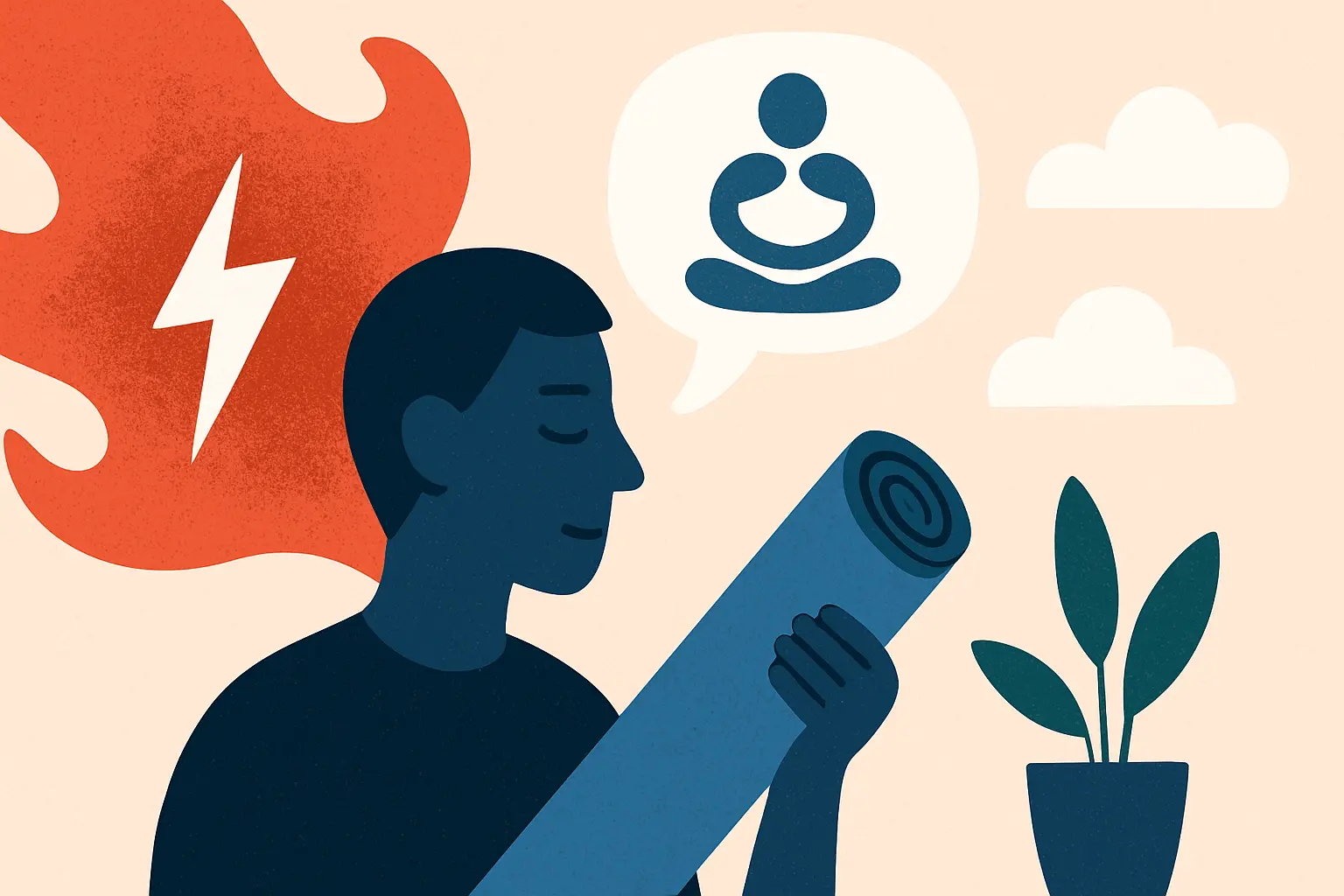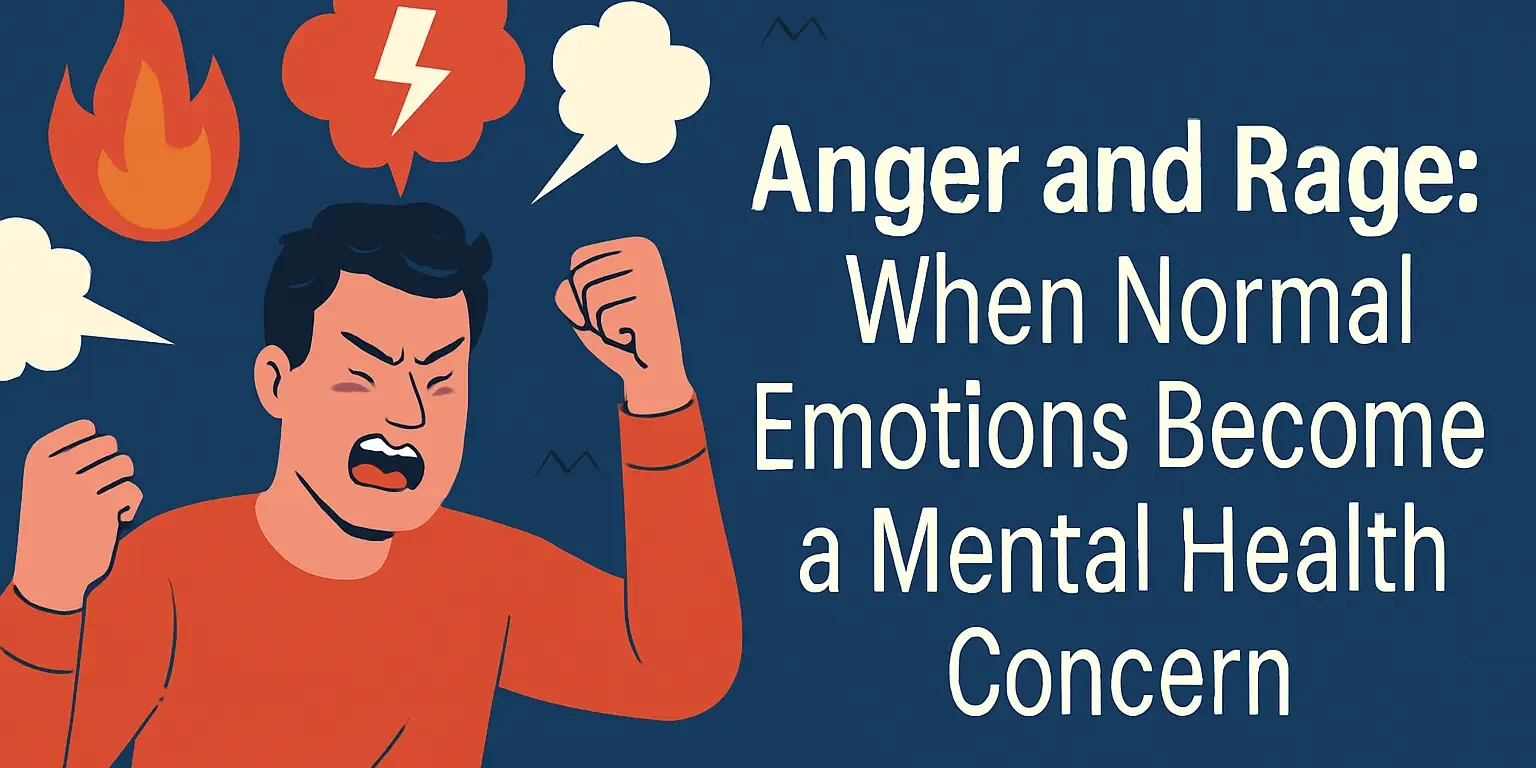Why Anger Deserves Attention
Everyone feels angry from time to time. It is a normal, even necessary, emotion that helps us recognize when something is wrong or unfair. But when anger turns into uncontrolled rage, it can harm relationships, damage careers, and even affect physical health.
Chronic anger has been linked to heart disease, high blood pressure, and anxiety disorders. It can also spiral into conditions such as Intermittent Explosive Disorder (IED), where sudden, disproportionate outbursts of rage disrupt daily life.
Understanding when anger is a normal reaction and when it becomes a mental health concern is the first step toward healthier coping.
What Is Anger?
Anger is more than frustration; it is a complex emotional and physiological response. When you feel threatened or blocked from reaching a goal, your body releases adrenaline, your heart rate spikes, and your muscles tense.
For some, this rush fades quickly. For others, it escalates into aggression, shouting, or even violence.
Healthy anger motivates constructive action, like setting boundaries. Unhealthy anger lingers, intensifies, and damages well-being or relationships.
Anger vs. Rage: Where’s the Line?
- Anger: A natural emotional response to frustration, injustice, or hurt. Usually manageable.
- Rage: An intense, uncontrolled explosion of anger. It can feel like being “hijacked” by emotion.
The differences often show up in frequency, intensity, and impact. If anger frequently crosses into rage, it may signal an underlying condition such as depression, anxiety, ADHD, or unresolved trauma. In many cases, people who live with ongoing trauma also experience difficulties regulating anger, which is why trauma counseling often includes anger management as part of recovery.

Common Triggers of Anger and Rage
Anger can surface from a wide range of experiences:
- External stressors: Arguments, criticism, or traffic jams.
- Internal stressors: Fatigue, hunger, or chronic stress.
- Life events: loss, job struggles, or relationship breakdowns.
- Underlying conditions: substance abuse, mood disorders, or untreated trauma.
Some people internalize frustration and show it through passive-aggressive behavior, while others explode outwardly with aggression. The healthiest expression is assertive anger, calm, direct communication of needs without aggression.
The Toll of Unmanaged Anger
Left unchecked, anger can:
- Increase risk of hypertension, heart disease, and weakened immunity.
- Damage marriages and family relationships.
- Lead to workplace conflict or job loss.
- Create cycles of guilt and shame after outbursts.
For many, these challenges spill into close relationships. Couples dealing with frequent anger often struggle with trust and communication, making marriage counseling an important tool for breaking unhealthy patterns and restoring balance.
If unmanaged anger is affecting your health or relationships, professional support can make a difference. Our licensed therapists can help you explore the root causes and develop healthier ways to respond.

Healthy Ways to Cope with Anger
The good news: anger can be managed with the right tools and support.
Therapeutic approaches include:
- Anger management therapy to recognize triggers and develop healthier responses.
- Person-centered counseling to uncover the hurt or fear that fuels anger.
- Trauma-informed therapy to address early experiences that continue to drive explosive emotions.
Practical coping strategies include:
- Deep breathing and mindfulness exercises.
- Regular physical activity to release stress.
- Journaling to track emotional triggers.
- Practicing assertive communication instead of bottling up or lashing out.
Working with a therapist in individual counseling can help identify which coping strategies fit best for your personal situation.
Coping strategies like mindfulness and exercise are powerful, but sometimes guidance is needed to make lasting change. Counseling offers tools to manage anger safely while strengthening your relationships.
When to Seek Help
You may want to consider professional support if anger:
- Feels uncontrollable or constant.
- Damages your closest relationships.
- Leads to violent or impulsive behavior.
- Leaves you feeling guilty, ashamed, or out of control.
In some cases, family members are directly affected by anger outbursts. Family counseling can create a safe space where everyone learns healthier communication and conflict-resolution skills together.
Uncontrolled anger does not have to define your story. With the right support, you can turn rage into resilience and build stronger, healthier connections.
From Rage to Resilience
Anger itself isn’t “bad.” It is a signal, an alarm bell, that something is wrong. But when left unmanaged, it can evolve into rage that harms both mental and physical health. By learning to recognize triggers, practicing coping skills, and seeking professional support, it is possible to transform destructive anger into healthy assertiveness.
If you are struggling with overwhelming anger or rage, you do not have to carry it alone. Our team at WPA Counseling provides compassionate care to help you manage emotions, repair relationships, and build resilience.
Learn more about Anxiety and Depression Counseling in Pennsylvania
Explore our approach to Couples Counseling in Pittsburgh
Or contact us today to begin your healing journey.








